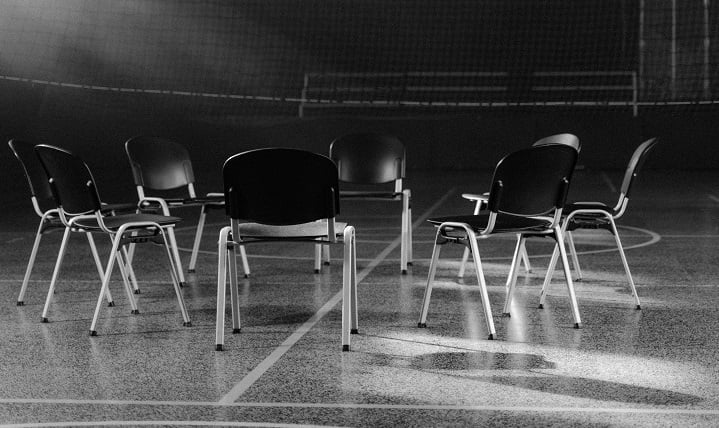Drug & Alcohol Rehab Cumbria & Near Cumbria
Quick Links for help with addiction in Cumbria and near Cumbria
- How Do I Know If I Need Rehab in Cumbria?
- What is Inpatient Addiction Treatment in Cumbria?
- What Happens If I Don’t Get Help at a Rehab in Cumbria?
- How Many Nights is a Residential Rehab Clinic in Cumbria?
- Can I Attend a Cannabis Rehab in Cumbria?
- Can I Attend a Cocaine Rehab in Cumbria?
- Can I Attend a Heroin Rehab in Cumbria?
- What Treatments are There at Drug and Alcohol Rehab in Cumbria?
Addiction is not considered a ‘choice’ or ‘moral failing’ on behalf of the addiction sufferer – drug and alcohol rehab in Cumbria is about treating the disease of addiction.
Once a person has had enough of the pain of substance abuse they will then be ready for rehab recovery in Cumbria.
The person who enters alcohol and drug rehabilitation centres will have the opportunity to develop important life skills that they can take into their everyday routine once they leave rehab.
Types of addiction that rehabs in Cumbria cover include alcohol, caffeine, cannabis, hallucinogens, inhalants, opioids, sedatives, hypnotics, and anxiolytics, stimulants, and tobacco.
Get the support of a drug and alcohol rehab Cumbria by calling our team today on 0800 088 66 86
How Do I Know If I Need Drug & Alcohol Rehab Cumbria?

If you are suffering from physical or psychological withdrawal symptoms when you have been abstaining from drugs or alcoholic substances, then you should be concerned that you are suffering from an addiction and should seek the assistance of a drug and alcohol rehab in Cumbria.
Because alcohol can present both forms of addictions – physical and psychological dependence – it can cause a great deal of complications to a patient’s rehab recovery, and withdrawal symptoms can be severe.
This means that alcohol addiction, especially from moderate to severe intensities, requires pharmacological intervention at a rehab in Cumbria.
What Types of Addictions Are Treated At Rehab in Cumbria?
Substance addiction encompasses a wide range of addictions, including alcohol use disorder, cannabis addiction, stimulant addiction, opioid addiction, each of which are treated at a drug and alcohol rehab Cumbria.
What Happens in the 28-Day Rehabilitation Treatment Programme in Cumbria?

The addiction treatment programme in Cumbria is generally structured the same for rehab patients suffering from each substance.
A typical 28 day addiction rehab treatment programme in Cumbria includes:
- Medical detox
- Behavioural therapy (e.g. C3BT, DBT)
- Licensed counselling
- Relapse prevention planning (e.g. HALT)
- Aftercare
However, there are some stages which belong in the rehab treatment of one substance, but not another. Some patients may need to undergo the medicated detox or medicated assisted therapy.
1. Addiction Treatment for Alcohol Use Disorder at Alcohol Rehab in Cumbria
Alcohol withdrawal symptoms at rehab can lead to severe bouts of vomiting, diarrhoea, trembling, delirium, or even seizures.
Pharmacological intervention through a medical detox in Cumbria can support rehab patients by allowing them to overcome these symptoms – safely – in a medically supported facility which is occupied by health professionals. Here, patients will have access to 24/7 support.
Alcohol withdrawal symptoms typically appear around 24 hours after the rehab patient’s last period of consumption, however, they can appear as soon as 6 hours if they are severely dependent.
Diazepam – a form of medication which falls under the category of benzodiazepines – is a popular method of rehab treatment for alcohol withdrawal syndrome.
2. Addiction Treatment for Opioid Addiction at Rehab
Examples of drugs which belong to the class of opioid include heroin, opium, morphine, methadone, codeine, and more. These drugs are highly addictive, and their withdrawal symptoms can last as long as two weeks or longer at rehab.
Opioid drugs can be highly addictive, and physically addictive, with withdrawal symptoms during rehab including but not limited to diarrhoea, vomiting, severe muscle cramps, anxiety, insomnia, and more.
Opioid withdrawal syndrome typically occurs at rehab around 8 to 24 hours after the last period of consumption, and withdrawal symptoms can last as long as 10 to 20 days.
These symptoms can include diarrhoea, insomnia, anxiety, vomiting, cramps, and more but they will be monitored and managed carefully by your rehab team.
Because of the potentially severe physical withdrawal symptoms, patients suffering from addiction to these substances will also need to undergo medical detox at rehab in Cumbria.
Patients at rehab may be prescribed medication such as Clonidine, Buprenorphine, and Methadone from an addiction physician in order to manage their dependence and withdrawal symptoms.
These can minimise symptoms in order to help patients proceed with the rest of their rehab recovery programme in far less discomfort.
3. Addiction Treatment for Cannabis Addiction at Rehab
Cannabis addiction is more often than not associated with psychological addiction, and therefore psychological withdrawal symptoms.
This means that patients who are suffering from cannabis dependence will not likely need to undergo a medicated detox at rehab.
However, that does not mean that they don’t suffer from troubling psychological withdrawal symptoms at rehab such as anxiety, depression, irritability, paranoia, and so on.
4. Addiction Treatment for Stimulant Addiction at Rehab
The types of drugs which belong to the stimulants category include methamphetamine, amphetamine, and cocaine.
These drugs are highly addictive, and withdrawal symptoms while at rehab can be both physical or psychological.
Patients who are suffering from stimulant addiction may be prescribed Diazepam during withdrawal at rehab, for example.
Diazepam can help optimise the addiction treatment process for rehab patients suffering from stimulant addiction by minimising symptoms including but not limited to aggravation, irritability, chills, and more.
What is Inpatient Addiction Treatment in Cumbria?

An inpatient addiction treatment programme will take place at a private or residential rehab facility.
Here, patients will be admitted and will stay at a rehab facility for around 28 days, undergoing a range of therapeutic techniques and treatment methods in order to establish long term recovery from addiction.
This is considered to be the most effective form of rehab treatment.
If required, the patient will undergo a medicated detox at their residential rehab facility.
Here, they will be prescribed medication from an addiction physician while staying at a comfortable and medically supported rehab facility, occupied by health practitioners as they overcome their withdrawal symptoms.
Furthermore, cognitive, behavioural, and holistic therapy are integral to the addiction rehabilitation process.
Patients will undergo a range of rehab therapy and support sessions in order to understand more about their addiction, how their cognitive and behavioural patterns work, and how they can develop healthy coping mechanisms to foster a better life.
Inpatient addiction rehab treatment is highly effective in not only overcoming initial addiction cravings, but developing a sustainable and healthy lifestyle.
The tools and knowledge gained from undergoing rehab treatment as an inpatient will be invaluable moving forward when it comes to recognising relapse triggers, overcoming relapse triggers, and living a more optimal life in general.
What is Outpatient Addiction Treatment in Cumbria?

Outpatient addiction treatment is typically associated with free or public rehabilitation.
There are benefits to undergoing outpatient addiction treatment, and it may be more optimal for certain rehab patients.
Patients who are suffering from only mild forms of addiction are able to undergo outpatient rehab addiction treatment.
Here, they will have more flexibility when it comes to rehab treatment, as they will be able to return to their homes each night.
Additionally, they will spend fewer hours undergoing rehab treatment per day or per week, however, their outpatient programme will span over a longer course of time than inpatient addiction treatment would in order to optimise their recovery.
The patient may also be able to undergo a home detox. During a home detox, the patient may be prescribed medication in order to recover and overcome their withdrawal symptoms from home.
In some cases, an addiction physician or health practitioner will visit the patient in order to ensure that they are progressing, however, this is dependent on the rehab facility.
Therefore, outpatient addiction treatment is optimal for patients who are suffering from mild forms of addiction, and who do not need to stay at a rehab facility for around 28 days.
They can instead opt for a more flexible and cost-effective outpatient rehab option.
However, while the benefits include flexibility, this can also be a major drawback when it comes to addiction rehab treatment.
Flexibility allows patients to maintain employment, academic pursuits, and personal interests while they are undergoing treatment. However, this level of flexibility leaves them exposed to a range of relapse triggers which could interfere with their rehab recovery.
Since a home detox would be a part of an outpatient programme, it is likely that the treatment will be public, and therefore less likely to have a health practitioner who would visit the home of the patient since public addiction recovery facilities are often overwhelmed and underfunded.
The flexibility that comes with a home detox can come with benefits, but also risks. Since there is much more flexibility and independence than inpatient rehab, it offers less support and more room for error for patients.
Residential Alcohol Rehab Vs. Outpatient. Which is Better in Cumbria?

It is not a case of which is “better”. One might argue that residential rehab and inpatient treatment is far more effective than outpatient treatment.
However, it may be considered to be overkill for those who are suffering from a very mild form of addiction, and cannot afford the costs or time away from their work or family to undergo inpatient rehab treatment.
Therefore, one form of treatment is more optimal for one patient than it would be for another. In the case of ASAM’s Addiction Rehabilitation Placement Criteria [5], there are four levels of recovery:
- Level 1: Outpatient Treatment
- Level 2: Intensive Outpatient Treatment
- Level 3: Inpatient Treatment
- Level 4: Intensive Inpatient Treatment
Patients will need to undergo an assessment to determine the optimal rehab care for them.
Patients who are suffering from a mild form of addiction typically undergo outpatient treatment, and those suffering moderately from addiction typically undergo intensive outpatient or inpatient rehab treatment.
Those who are suffering from severe forms of addiction should undergo inpatient rehab or even intensive inpatient treatment.
Addiction specialists will use ASAM’s Placement Criteria, which is a multi-dimensional substance screening tool to help determine what form of rehab care they should undergo.
During the placement or level selection of rehab, the criteria takes into consideration these factors:
- Withdrawal Potential: How likely is the rehab patient to suffer from severe withdrawal symptoms?
- Relapse Potential: How likely are the patients to relapse?
- Biomedical Complications: Does the patient have any physical or medical requirements which may affect their recovery?
- Emotional, Behavioural, or Cognitive Complications: Does the patient suffer from any mental health issues (co-occurring disorders) or behavioural issues?
- Willingness to Change: How ready and committed is the patient to change?
- Recovery and Living Environment: Does the patient have a stable and healthy living or recovery environment at home?
Based on the results of these factors during the patient’s health assessment, the addiction specialists will be able to advise the patient on which form of rehab treatment – inpatient or outpatient – is most optimal for them.
This can relieve some of the stress for the addicted person who needs to make an informed decision on which form of rehab treatment they should undergo.
While a home detox may be a good option for some patients who are suffering only from a mild form of drug and alcohol addiction, it is not necessarily optimal – and perhaps even dangerous – for patients who are suffering from a more severe form of addiction.
As always, we should remember that when it comes to addiction, treatment does not adhere to the one size fits all rule. The addiction rehab treatment process should be facilitated in suitable recovery environments.
When someone is recovering as an outpatient and is undergoing a home detox, the home must be a recovery environment which does not pose any overwhelming relapse triggers.
Some rehab patients may struggle to maintain a positive relationship with their family members, which can be a form of relapse trigger.
Because of this, some patients should opt for rehab treatment as an inpatient.
These patients are staying in an environment – their home – which is not medically supported and may even present relapse triggers.
Because of this, a medicated detox at a rehab facility is highly important especially for patients suffering from severe levels of dependence.
However, if your addiction symptoms are mild and you are able to undergo rehab treatment as an outpatient according to the ASAM’s treatment placement criteria, then you may be able to undergo a home detox and find success throughout your recovery.
However, undergoing a home detox is something which needs to be considered by rehab health practitioners in order to make a wise and calculated decision.
Will I Be Able to See My Family During Drug & Alcohol Rehab Cumbria?

Typically, patients are able to see their friends or family members during their recovery, however, different rehab facilities will have different rules regarding family visitations.
It is common for rehab facilities to enforce a rule which forbids visitations or contact within the first two weeks of treatment to maximise the patient’s focus.
However, after this stage, family members can organise to visit their loved one at rehab.
Can I Leave Rehab At Any Time in Cumbria?
It is only ethical to allow someone to leave the rehab whenever they want.
While the addiction specialists and health practitioners will certainly advise against leaving rehab during treatment, the patient has the right to leave whenever they want.
Do Rehabs Centres Provide Gender-Specific Treatment in Cumbria?
In addition to undergoing addiction treatment for young patients specifically, it is possible to enter a gender specific rehab in order to optimise your treatment.
You may be wondering why someone would want to enter a gender specific rehab, and this is largely down to personal preference.
Some of the benefits of these rehabs include but are not limited to:
- Considering cultural differences: Addiction specialists believe that there are slight cultural differences between males and females when it comes to drug and alcohol consumption. For example, males are much more likely to be involved in criminal activity related to drugs (e.g. trafficking), and statistics show that a higher percentage of men become dependent on illicit drugs than women. However, women are just as likely to develop a substance use disorder, implying that the relationships with these substances differ between different biological sexes.
- Considering biological differences: Because of the biological differences between males and females, it is important to consider how these can affect their condition and their addiction recovery. One example is that studies suggest that women may be more likely to suffer from cravings and relapse than men are.
- Considering personal preferences: Some people would simply feel more comfortable at a rehab facility which is especially designated for people of the same sex. This can make the patient feel more safe and at ease throughout your treatment.
What Happens If I Don’t Get Help at Rehab in Cumbria?

Undertaking recovery yourself – or not seeking help at all at rehab – is a dangerous strategy when it comes to addiction.
There are many ways in which inadequate or a lack of support can exacerbate your addiction symptoms and any other existing physical or mental problems.
If you do not seek help at rehab, you are likely to keep relapsing.
Without the necessary knowledge, resources, and rehab facilities to assist you in your recovery, you are unlikely to even overcome your initial withdrawal symptoms.
Withdrawal symptoms appear anywhere from 6 to 24 hours after your last period of consumption, and because they can be mildly or extremely discomforting, and can even be fatal, they coerce rehab patients to relapse in order to relieve these painful symptoms.
Without the necessary medication or rehab support from health professionals, patients are highly unlikely to overcome the withdrawal stage without relapsing.
Furthermore, addiction treatment at rehab grants patients access to professional counsellors who can utilise therapy in order to address mental health issues and develop long term habits which benefit their health.
Can I Recover From Addiction Without Professional Help at Rehab?

It is highly unlikely that you will be able to recover from substance addiction without professional help at rehab.
People who are attempting to recover from their drug and alcohol addiction without the support of a rehab will be missing key components of addiction recovery programmes, including but not limited to the following things:
- Science and evidence based treatment
- Professional counselling
- Prescribed medication
- Safe recovery environments
- Support networks & aftercare following rehab
How Do I Tell My Family I’m Going to Rehab in Cumbria?
It can be tough telling anyone about your addiction, let alone that you are going to a drug and alcohol rehab in Cumbria. This is especially the case when the people involved are your family members.
Some family members may already want you to enter a drug and alcohol rehab because your addiction may affect their lives significantly.
Others may be more apprehensive about entering a drug and alcohol rehab, and may not even consider addiction to be an illness.
Each relationship and family dynamic is different, however, there are many ways that subjects can approach the conversation about telling their loved ones that they are going to a drug and alcohol rehab.
Consider using the following strategies:
- Explain to them that addiction is affecting your life
- Provide them insight into the recovery process
- Explain that entering rehab is temporary
- Establish boundaries
How Effective is Rehab in Treating Alcohol or Drug Addictions?

A drug and alcohol rehab is arguably the most effective way to treat a drug and alcohol addiction.
The whole purpose of a drug and alcohol rehabilitation centre is to help patients overcome substance addiction, that is their speciality.
Addiction treatment at a drug and alcohol rehab – particularly residential and inpatient treatment – will take place at a medically supported facility.
Here, patients can undergo therapy (cognitive and behavioural therapy) while simultaneously being supported and medically supervised by health professionals at rehab.
Patients will undergo a thoroughly comprehensive addiction rehab treatment programme, and this will not only help them overcome short-term symptoms of addiction but will help them develop long-term habits which can facilitate a healthy lifestyle of sobriety.
Patients will achieve this long-term lifestyle of physical and mental well-being through a range of methods at rehab:
- Cognitive and behavioural therapy
- Emotional and mental counselling
- Support sessions and introduction to other forms of support networks
- Family therapy
- Relapse prevention strategies
- Aftercare
At Rehab Recovery, we will only recommend rehabilitation facilities which have been evaluated and regulated by reputable inspectors.
In England and Wales, drug and alcohol rehabs are regulated by the Care Quality Commission [6].
This means that the drug and alcohol rehabs which we recommend are of high standard and can adequately cater to a patient’s unique needs and requirements when it comes to addiction recovery.
In addition to rehab facilities, the Care Quality Commission regulates hospitals, clinics, dental services, care homes, nursing homes, and more.
They play a monumental role in ensuring that rehab patients are undergoing care which is both ethical and of a high enough quality to facilitate their recovery.
The Care Quality Commission regulates care providers and grades rehabs according to 4 levels:
- Inadequate
- Needs Improvement
- Good
- Outstanding
In addition to having a strong and reliable framework which can help determine the efficacy or ethics of a rehab or social care facility (which you can view through the enforcement policy [7]), these records are accessible to the public.
This means that you can view the ratings of potential rehab providers in order to help you make your decision when it comes to entering rehab.
Will Rehab Cure Me of My Addiction?
When asking this question, it is important to understand that addiction is not technically “curable”, even at rehab.
While addiction is a chronic brain disease and is technically not “curable”, it is certainly treatable when you enter a rehab.
If something is curable, it means that it can be essentially overcome entirely.
However, when someone is suffering from a substance addiction or substance use disorder, it means that the reward pathways in their brains have been altered in a way which makes them susceptible to physical and psychological dependence on particular substances.
This means that even if they have recovered the initial symptoms and are not facing cravings, their addiction can recommence should they resume consumption after rehab.
Undergoing treatment at a drug and alcohol rehab will help patients overcome addiction in the long term.
Despite being susceptible to addiction, rehab patients will learn a range of coping mechanisms, relapse identification skills, and gain a wealth of insight into their own unique addiction.
This can help them establish long term rehab recovery and live a healthy and fulfilling life.
Does Drug and Alcohol Rehab for Teens Work?
The direct impacts of drug and alcohol addiction are not only limited to those who are adults.
A study conducted by the UK Government titled the UK Adult Substance Misuse Treatment Report (from April 2021 to May 2022) also saw that there were 3,602 people undergoing addiction treatment at rehab who were aged 18 or 19.
When a young person develops a substance dependence, is it of the utmost importance that they seek professional help in the form of a drug and alcohol rehab in Cumbria or elsewhere.
Here, they will have access to the highest quality of rehab treatment for substance addiction, and their unique requirements will be met.
Not only can young people enter a drug and alcohol rehab, they can enter a drug and alcohol rehab for teens and young people.
These facilities which are especially catered to younger people can offer much more benefits to a young person than a standard drug and alcohol rehab would.
A drug and alcohol rehab for teens or young people will place much more emphasis on therapy sessions and counselling led by licensed counsellors and therapists rather than medicated assisted therapy.
Popular forms of therapy which help rehab patients gain insight and emphasise change in their cognitive or behavioural patterns include Cognitive Behavioural Therapy and Dialectical Behavioural Therapy.
These forms of therapy help rehab patients not only understand their self-destructive or negative cognitive and behavioural habits, but helps them address them and replace them in favour of more constructive habits.
While there will be less emphasis on medicated assisted therapy at rehab because of how susceptible the young patient’s brain is, this also provides an opportunity to introduce them to positive lifestyle changes while they are young and more able to develop healthy lifestyle changes.
Holistic therapy is another form of therapy which is highly beneficial for young patients at rehab (in addition to older patients).
Examples include but are not limited to yoga, meditation, breath work, equine therapy, adventure therapy, and more.
This can not only improve the health of patients, but expose them to new outlets where they can express themselves and exercise independence all while improving their health in dynamic ways.
In addition to these forms of treatment at rehab, family therapy can have a strong impact on a young person’s rehab recovery process.
Family therapy can be incredibly beneficial in improving lines of communication between family members, equipping family members with insight and the necessary tools to support their loved one’s addiction, and to also overcome any toxic behavioural tendencies that are exhibited within the family.
These can help foster a healthier family dynamic and create a home environment which can also serve as a recovery environment for the patient post-rehab.
Examples of family therapy at rehab include but are not limited to Functional Family Therapy, Multidimensional Family Therapy, Family Behaviour Therapy, and more.
What Does it Mean if You Get a Dual Diagnosis at Rehab in Cumbria?

Some people will enter rehab in Cumbria and be given a dual diagnosis by a member of staff. If this occurs, it will most likely happen during the admissions process. This is where you’ll participate in one or two psychiatric assessments.
It might all sound a little intimidating, but it really isn’t. The assessments will be explained soon, but they’re really just to establish how serious your addiction is and what treatments you need at rehab.
They also allow the member of staff at rehab to find out if you might also have a mental health problem.
If you do, then the mental health disorder existing along with addiction is called a dual diagnosis. It means you have two conditions for the staff to address.
In general, a vast majority of people who have addictions and enter rehab usually have other mental health issues too.
This is because people who have ongoing symptoms linked to depression, trauma, or personality disorder, for instance, might turn to alcohol and drugs as coping mechanisms for these symptoms.
The most commonly diagnosed mental health disorders at rehab in relation to substance use disorder are:
- Schizophrenia
- Bipolar Disorder
- Eating disorders
- Depression
- Generalised Anxiety Disorder (GAD)
- Borderline Personality Disorder (BPD)
- Obsessive Compulsive Disorder (OCD)
- Attention Deficit Hyperactivity Disorder (ADHD)
- Post Traumatic Stress Disorder (PTSD)
- Codependency
You can reach out to a number of helplines for mental health support, including Mind UK, YoungMinds, Rethink Mental Illness, Samaritans and Papyrus,
Many physical conditions induced by addiction are also considered under the dual diagnosis factor, including:
- Liver failure
- Hepatitis
- Heart issues
- Blood pressure issues
- Brain damage
- Gastrointestinal issues
While medications like Selective Serotonin Reuptake Inhibitors (SSRIs), especially Sertraline, can help ease anxiety symptoms, it is helpful to prevent anxiety and other effects that cannabis might be causing you.
Find out how a drug and alcohol rehab in Cumbria will work to support your mental health by calling us today on 0800 088 66 86
What are the Benefits of Abstinence at Rehab?
When you enter a drug and alcohol rehab in Cumbria, you will become sober. The ultimate goal for a person with an addiction is abstinence, which is long-term sobriety.
The reason for this is that abstinence is the best way of managing the problem.
Lots of people enter rehab hoping that they’ll be able to one day drink or use drugs in a controlled way.
Due to how addiction wires the brain, this simply isn’t possible. It’s also why many people relapse after hoping they can handle one drink or drug hit.
Make sure that you reach abstinence and maintain it well with the help of a drug and alcohol rehab in Cumbria by calling us today on 0800 088 66 86
What are the Benefits of Attending a Private Addiction Rehab Clinic in Cumbria?

Image above: Outside a drug and alcohol rehab in Cumbria
A private rehab clinic offers a service that addresses all areas of addiction. The staff understand the complex nature of the illness you have.
Bearly two-thirds (64%) of people have a wait of more than four weeks for NHS therapy so going to a private rehab can prevent this wait.
Private rehab clinics offer the best level and breadth of support in terms of addiction treatments.
Benefits you gain from private rehab treatment include:
- A safe environment where you won’t have access to substances. You’ll have contact with others who understand your situation and goals.
- An individualised programme of treatments to suit your needs.
- 24-hour care. This is especially helpful for people when struggling with cravings and withdrawal.
- An overseen detox means people come off alcohol, opiates, and benzodiazepines in a safe way.
- A huge range of therapies so you can begin to heal the mind and spirit.
- Groups such as 12 Step and SMART sessions as well as one-to-one sessions.
- A relaxed environment with healthy food and relaxed rejuvenating exercise activities.
Get all the benefits of a private addiction clinic in Cumbria by giving our team a call today on 0800 088 66 86
What is Council-Funded Drug & Alcohol Rehab in Cumbria?

Image above: Therapy chairs at a rehab in Cumbria
One of the other main rehabilitation options for those suffering from drug addiction or alcohol addiction is council-funded treatment.
These offer a more generic approach. This is because the service is available to a much larger amount of people in the community.
There is group therapy available every week and might be some one-to-one therapy available too.
NHS services are especially useful for people who have achieved abstinence and need a little encouragement from a rehab team or for those who need harm reduction advice.
Below is a list of other organisations that offer free support and advice for addiction in and around Cumbria, including some offered by the National Health Service or an NHS Foundation Trust:
1. CGL Change Grow Live
Address: 173 Euston Rd, Morecambe LA4 5LQ
Telephone: 01524834210
Website: https://www.changegrowlive.org/
2. Turning Point, near Cumbria
Address: 19 Falcon St, Workington CA14 2XN
Telephone: 01900873301
Website: https://www.turning-point.co.uk/
3. NHS CAMHS in Cumbria
Address: Park Lane Clinic, Park Lane, Workington, Cumbria CA14 2RR
Telephone: 01900 705 800
Website: https://www.cntw.nhs.uk/services/child-and-adolescent-mental-health-service-west/
4. CADAS Kendal, near Cumbria
Address: Stephenson Centre, Ann St, Kendal LA9 6AA
Telephone: 0300 111 4002
>
You can reach out to a number of remote services, such as the National Institute for Health and Care Excellence (NICE), Turning Point, We Are With You, Change Grow Live and the National Association for Children of Alcoholics.
If you are suffering from too many temptations and triggers in your home life, you may also be able to gain temporary residence in a sober living house.
For help applying for NHS funding to access drug and alcohol rehab in Cumbria, call our team today on 0800 088 66 86
What Makes You Eligible for a Stay at a Private Rehab in Cumbria?
There are certain levels of addiction, though, where it’s not only beneficial to attend inpatient rehab, it’s essential for your health and safety.
You will likely be eligible for rehab in Cumbria if you experience any of the following:
- Becoming angry and violent when drinking or taking drugs.
- Having mental health problems too.
- Having suicidal thoughts.
- Drinking more than 30 units of alcohol a day.
- Using more than one type of drug to feel an effect.
- Taking increasingly more amounts of the drug to feel an effect.
- Having delirium tremens or shaking when you don’t drink.
- Suffering from Wernicke’s Encephalopathy.
- Have seizures when you don’t drink.
To find out if residential rehab in Cumbria is right for you, call our team today on 0800 088 66 86
Will Your Insurance Cover Drug & Alcohol Rehab in Cumbria?
When it comes to insurance providers covering or reimbursing you for addiction rehab treatment costs, it is important to understand that it depends on your unique insurance provider.
No two insurance providers are the same, and insurance plans vary under the same provider.
Because of this, it is imperative that you take the time to thoroughly understand what your insurance provider and what they do not, especially before entering a drug and alcohol rehab under the assumption that it is covered by your provider.
Some patients may have private or employee health insurance which may cover some of their rehab treatment.
Even if the insurance policy does not cover the entire cost or duration of a patient’s stay at a drug and alcohol rehab, it may cover some aspects.
Some insurance policies may cover the medication prescribed, the counselling sessions, accommodation, and so on, when it comes to addiction rehab treatment. On the other hand, some insurance policies may not even recognise substance addiction as something they can offer coverage for.
This is why it is paramount that the subject communicated thoroughly with their insurance provider in order to understand what is and is not covered.
They can also communicate with their rehab provider in order to understand what exactly is featured in the addiction recovery programme. That way, they will know what to ask about what is (and what isn’t) covered with their insurance.
What Other Options for Drug Addiction Treatment in Cumbria are There Other Than Rehab?

Professionally supported drug and alcohol rehab is one of the best ways to recover from addiction, but it isn’t for everyone.
For those who aren’t suited to a stay at rehab, there are other ways you can get treatment. You might focus on one of the following or you might get involved with a few.
Your alternative options to rehab in Cumbria or near Cumbria are:
- A medically overseen home detox (more on this later).
- Outpatient treatment at a council-funded clinic or private clinic.
- Local 12-step groups such as Alcoholics Anonymous Cumbria, Narcotics Anonymous Cumbria and Cocaine Anonymous, as well as their offshoot groups like Al-Anon Family Group Meetings and Alateen. These provide an environment of mutual support as well as the chance to lean on a higher power when addiction seems overwhelming.
- Secular peer-support organisations like SMART Recovery.
- Family sessions are arranged by organisations that support the families of addicted people.
Find your ideal option for addiction treatment in Cumbria by calling our team today on 0800 088 66 86
What is Alcoholics Anonymous in Cumbria?
Alcoholics Anonymous (AA) is a fellowship programme which provides a support network and active engagement strategies such as the 12-Step Facilitation Programme in order to help those who have recovered from addiction to sustain their recovery.
AA offers support sessions, and members are not required to pay to attend and share their experience.
What is Narcotics Anonymous in Cumbria?
Narcotics Anonymous (NA) is a fellowship programme, similar to AA. While NA caters more towards people suffering from drug addiction rather than alcohol addiction, both AA and NA welcome those who suffer from different substances.
What is Smart Recovery in Cumbria?
SMART Recovery (Self-Management and Recovery Training) is another fellowship programme which helps people overcome their drug or alcohol addiction. While AA and NA follow the 12-Steps, SMART follows a 4-Point Program.
How Much Does Drug & Alcohol Rehab in Cumbria Cost?
The financial aspect of rehab has to be considered. There are many options and it’s worth calling Rehab Recovery for more advice.
In general terms, though, at rehab you can expect the following:
For a 28-day residential rehab in a shared bedroom, it would cost around £6,000.
For 28-days in a rehab room to yourself, it’s between £8,000-£12,000.
For a 10-day detox at rehab where you share a room with others, it’s around £2,000-£4,000. For a 10-day detox with a bedroom to yourself, it’s about £3,000-£6,000.
A medically supervised at home (a home detox) is about £1,500.
Where you go, what rehab treatments you need and the length of stay will affect costs.
It’s worth having a chat with the rehab clinics you’re interested in, or call Rehab Recovery and we lead on this for you.
To learn how much your stay at a drug and alcohol rehab in Cumbria may cost, call our expert team today on 0800 088 66 86
How Do I Choose a Rehab in Cumbria for My Needs?
There are ways you can whittle down your rehab options.
By doing the following, you make the decision easier:
- Research what rehabs are available in Cumbria or other areas you might be interested in going to.
- Make a list of questions about treatments and the clinic itself and call the clinics. Find out their answers. It will give you a feel for the clinic.
- Look up what other people are saying about the clinic, does it have good reviews?
- Find out what the recovery rates are like and how people are supported with an aftercare plan.
Get the help you need to choose your perfect drug and alcohol rehab in Cumbria by calling our team today on 0800 088 66 86
Do I Need to Detox at a Drug & Alcohol Rehab in Cumbria?

Substances such as alcohol, benzodiazepines, ketamine and heroin will require a detox at rehab because the substances have caused a physical need within the body.
Alcohol can have a whole range of effects on the body like difficulty walking, blurred vision, slurred speech, slowed reaction times and impaired memory.
Heavy drinking is classed by the NHS as more than 14 units per week and would therefore need a detox during alcohol rehab.
Alcohol addiction is common, with a study by Robin Room, Thomas Babor and Jürgen Rehm revealing that ‘4% of the global burden of disease is attributable to alcohol’, which makes up for almost as much death and disability as tobacco and high blood pressure (hypertension) globally.
Detox at rehab does not apply in the case of non-physically dependent substances, such as cocaine dependence, cannabis use disorder, or behavioural addictions (i.e gambling addiction).
If you struggle with alcohol addiction to the extent that you experience alcohol withdrawal symptoms, you’ll need an alcohol detox at rehab.
Alcohol withdrawal syndrome can be fatal at worst which is why you need a doctor in rehab to oversee the first week you stop drinking.
Physical withdrawal symptoms you can experience during detox at rehab can include:
- Mood swings
- Anxiety and panic attacks
- Shaking and sweating profusely
- Insomnia
- Hallucinations
- Seizures
- Delirium tremens
- Wernicke’s encephalopathy
A doctor will also provide access to a prescription drug – usually Chlordiazepoxide, also known as Librium – to ensure any distressing effects felt during withdrawal at alcohol rehab are kept to a minimum.
Detoxing at a rehab centre in Cumbria also means you’ll be safe and looked after. Prescription drugs provided during a medically-assisted detox will work to prevent seizures.
Another medication that can be used to stop drinking is Acamprosate (Campral®), which helps rebalance the chemicals in the brain that have been damaged by drinking alcohol.
The opioid antagonist Naltrexone can also be helpful in cutting alcohol out of your life as it decreases the alcohol you consume.
A detox at alcohol rehab in Cumbria lasts between 7-10 days.
Some people might be approved to have a supervised home detox. This is where a doctor makes daily contact with the patient while they’re living at home. There will be home visits too. Again, it lasts between 7-10 days.
People who go through detoxes at rehab are advised to also enter therapies. Addiction exists due to how the brain has changed and restructured.
This can only be treated through psychotherapies and alternative therapies. But you might find that realising you have a drinking problem is the first step to rehab recovery.
As for your body’s recovery after drinking alcohol, damaged organs may regain function partially or might heal altogether, depending on what state they were in and if you’ve had a relapse or not.
It is important to begin your rehab recovery now, as being an alcoholic is thought to drastically lower your age of death. The average age of death for an alcoholic is 47–53 years in men and 50–58 years in women.
It is reported that about 14% of alcoholics will develop liver cirrhosis if they continue their drinking habits for over a length of time of 8 years. It is a good idea to stop drinking today so that you can have the best chance at a full recovery when you leave rehab.
Alcoholism can also cause a dual diagnosis at rehab such as anxiety and depression, which means you might be able to get prescribed medications such as an antidepressant like nefazodone, desipramine, or imipramine.
According to the NESARC data, 28.6% of people with a current alcohol use disorder diagnosis had at least one personality disorder like bipolar disorder.
To learn more about alcohol detox, drug detox or anything else about rehab centres in Cumbria, call us today on 0800 088 66 86
How Many Nights is a Residential Rehab Clinic in Cumbria?
For the majority of people, it will either be a 7-10 rehab stay, which will likely focus on detox.
The vast majority of people who go to rehab will stay for around 28 days.
This is really the advisable length of time. It provides enough time for people to really delve into the psychology behind their addiction. With the specialist rehab staff available, healing can begin.
Can I Attend a Cannabis Rehab in Cumbria?

People suffering from cannabis addiction don’t always think about rehab. There are a lot of conflicting ideas and messages around cannabis use.
The truth is, cannabis, despite it being used sometimes in the medical field, does have psychoactive properties. Illegal cannabis that isn’t regulated can also be incredibly strong.
Like any drug, cannabis can create an addiction and it can also have seriously unwelcome effects that need the help of a cannabis rehab.
Therapy will focus on developing your understanding of what has caused the problem. It will guide you to take control of your decisions. You will not need to undertake a cannabis detox at rehab.
A study by Wayne Hall and Louisa Degenhardt identified the adverse side effects of regular use of cannabis during adolescence and into adulthood can include ‘a dependence syndrome, increased risk of motor vehicle crashes, impaired respiratory function, cardiovascular disease, and adverse effects of regular use on adolescent psychosocial development and mental health’.
Beat your cannabis addiction with the help of a drug and alcohol rehab in Cumbria – call our team today on 0800 088 66 86
Can I Attend a Cocaine Rehab in Cumbria?
Throughout the UK, cocaine problems are on the rise. This is linked to the increase in availability worldwide.
Many people use cocaine or crack cocaine recreationally without realising where this type of use can end up.
Actually, many people become regular weekend users, this can quickly become daily use.
Cocaine addiction and its devastating effects aren’t dependent on daily use. It could be weekend use that is causing a serious impact.
Treatments at cocaine rehab focus on providing you with the techniques to help you achieve inner peace, particularly as cocaine detox is not required.
You’ll also be invited to include family therapy or codependency sessions should this be helpful while at rehab.
Beat your cocaine addiction with the help of a drug and alcohol rehab in Cumbria – call our team today on 0800 088 66 86
Can I Attend a Heroin Rehab in Cumbria?
It’s really important for people suffering from heroin addiction to enter rehab and undergo a heroin detox, as well as complete a course of therapy. This is because heroin causes dependency.
As such a physical detox is required during your rehab stay. This, like the alcohol detox mentioned above, requires a doctor to oversee the patient.
Heroin detox is extremely important to ensure a safe recovery, as it is for any opioid use disorder. Medications like methadone and buprenorphine are widely used to make heroin withdrawal a much safer process at rehab.
The detox during rehab lasts between 7-10 days.
After detox at rehab, relaxed activities begin which support a person to feel more content in their body.
This is also the time for psychological therapies. It’s important people with heroin addiction participate in therapy while they are attending rehab in order to regain control of their minds and body.
Beat your heroin addiction with the help of a drug and alcohol rehab in Cumbria – call our team today on 0800 088 66 86
What Are the Signs That An Alcohol Addiction is Present in Cumbria?

There are many different signs to look out for when possibly suffering from a drug or alcohol dependence that may require a rehab stay.
When the addicted person experiences physical withdrawal symptoms, they may need to undergo a medicated detox at a drug and alcohol rehab in order to recover safely and optimally.
Psychological withdrawal symptoms can come in the form of anxiety, paranoia, insomnia, depression, and more. Mental health issues and addiction share a mutual and extremely tumultuous relationship.
In the United Kingdom, it was confirmed that around 70% of patients entering rehab treatment required additional mental health treatment [11] in order to recover.
Psychological withdrawal symptoms are not necessarily as dangerous as physical withdrawal symptoms, and rarely require a medicated detox at rehab.
However, they still cause a range of problems and can develop into long term mental health disorders such as anxiety, bipolar disorder, schizophrenia, depression, and more.
The frequent and long term consumption of psychoactive substances can severely impair cognitive abilities among addicted people.
Alcohol, and many other drugs, are neurotoxins. This means that they literally kill brain cells and affect our cognitive abilities related to memorisation, emotional regulation, processing information, and so on.
Additionally, drug and alcohol consumption can lead to a range of long term physical health ramifications if you don’t seek help at rehab.
Drugs and alcoholic substances are carcinogenic, which means that they can promote cancer growth. There are many cancers and diseases related to drug and alcohol consumption, such as lung cancer, liver disease and cancer, cardiovascular disease, and so on.
In fact, it is estimated that around 90% of liver disease cases are preventable.
The factors which lead to many people developing liver disease include obesity and alcohol consumption, and many cases of liver diseases are actually diagnosed as alcohol related liver disease [12].
Furthermore, drug and alcohol consumption can lead to high blood pressure, which can then lead to heart attacks, strokes, and more.
What Percentage of Alcoholics Recover in Cumbria?
It is hard to quantify how many people recover because a large majority of people don’t seek help at rehab.
Either they don’t believe that they are suffering from addiction, or they are apprehensive about the addiction process. However, studies show that of those who enter rehab, around 3 in 4 people who experience addiction eventually recover [13].
Do I Have to Tell My Boss About Alcohol Rehab in Cumbria?

It can be hard to tell your employer that you are suffering from addiction and need to enter rehab.
However, by coordinating with your employer in advance, they will be able to help you during your temporary absence at rehab.
Additionally, the Employment Rights Act 1996 protects employees from discrimination in the workplace, should you be worried about potential unfair treatment due to your illness and rehab need.
Additionally, it is important to communicate why you are entering rehab.
By explaining the ways in which substance addiction is affecting your life, whether by deteriorating your physical and mental health, occupational or academic performances, personal relationships, or other, they will sympathise with you.
How Long Does Alcohol Rehab Last in Cumbria?
The answer depends on many factors, like how severe the patient’s dependence is, whether they are an outpatient or an inpatient at rehab, and so on.
Those who are inpatients will enter a residential drug and alcohol rehab facility for around 28 days.
If their addiction is so severe – or they relapse – they may need to stay in rehab longer.
Outpatients at a public drug and alcohol rehab will undergo treatment for a much longer period of time, however, at a far less intense pace.
What Treatments are There at Drug and Alcohol Rehab in Cumbria?
As well as the detox on offer for people with physical dependence, there are many other rehab treatments.
From talking therapies to psychiatric rehab treatments, these often include:
- Group Therapy and Group Psychotherapy
- Family Therapy
- Individual Therapy
- Codependency Treatment
- Cognitive Behavioural Therapy
- Brief Intervention
- Motivational Interviewing, Motivational Enhancement Therapy and other forms of motivational therapy
- Eye Movement Desensitisation and Reprocessing
- TSF (Twelve-Step Facilitation Therapy)
- Dialectical Behavioural Therapy
- Acceptance and Commitment Therapy
- Contingency Management
- Rational Emotive Behaviour Therapy
- Holistic and alternative therapies (music therapy, art therapy, mindfulness, meditation, yoga, acupuncture, equine therapy, drama therapy, etc)
If you go on to have CBT (Cognitive Behavioural Therapy) therapy for alcohol addiction in particular, a report has shown that the success rate is 83.87%. Therapy after rehab treatment is therefore highly recommended.
How Does a Relapse Prevention Plan Work to Support You?

Together you’ll discuss the emotional, physical, social and psychological triggers you have.
The HALT method will introduce you to a new way of approaching a craving. You’ll learn how to identify whether you’re feeling hungry, angry, lonely, or tired.
When you have identified which human state you’re in, you’ll then understand how to manage the craving and trigger to prevent a relapse after rehab.
The staff at rehab in Cumbria will help you to come up with ideas on what to do in those moments.
The plan might include steps such as contacting a friend or drug worker or going to a local exercise class.
By sticking to your relapse prevention plan, you can remain abstinent once you leave rehab.
Make sure that your stay at a drug and alcohol rehab in Cumbria is matched by an equally effective relapse prevention plan by calling our team today on 0800 088 66 86
How can I adjust to life in recovery?
When people first give up alcohol or drugs in rehab, after years of substance abuse, there is usually a period of adjustment. The individual is unlikely to have developed their problems overnight so it is also unlikely that they will recover overnight.
This type of thing takes time, and it is vital that the individual is prepared for the challenges that are going to lie ahead and has realistic expectations.
One of the best places to properly prepare for life in recovery will be a rehabilitation centre.
It is recommended that those people in Cumbria consider this option so that they are better prepared for the emotional roller-coaster of early recovery, receiving the right support and aftercare for their needs following rehab.
Get all the help and support you need from a drug and alcohol rehab in Cumbria by calling us today on 0800 088 66 86
How Can I Find Out More Information to Begin Rehab in Cumbria?

For more information on detox and rehab options in Cumbria, contact Rehab Recovery today on 0800 088 66 86.
When you contact us, we shall outline a variety of addiction rehab treatment services that are available to you in Cumbria.
This includes both private and statutory addiction treatments. All drug and alcohol rehabs must be registered and audited by the Care Quality Commission (CQC).
We also offer our drug and alcohol rehab services in a variety of locations in and around Cumbria, including Carlisle, Kendal, Barrow-in-Furness, Lancaster, Blackpool and Newcastle.
How Can I Refer Myself Into Rehab in Cumbria?
When you call us, you will come into contact with a friendly and experienced rehab admissions officer who is at your disposal to answer any questions.
When you are ready, the admissions officer will conduct a health assessment (free of charge) over the phone in order to begin the process and find the most optimal rehab for you.
In order to refer yourself into addiction treatment, you can call Rehab Recovery by dialling the number 0800 088 66 86.
References
[1] DSM-5 Criteria for Substance Use Disorder https://www.ncbi.nlm.nih.gov/pmc/articles/PMC3767415/
[2] Alcohol Use Disorders Identification Test https://assets.publishing.service.gov.uk/government/uploads/system/uploads/attachment_data/file/1113175/Alcohol-use-disorders-identification-test-AUDIT_for-print.pdf
[3] CAGE-AID Questionnaire https://www.hiv.uw.edu/page/substance-use/cage-aid
[4] Impact of Substance Use Disorders on Families and Children https://www.ncbi.nlm.nih.gov/pmc/articles/PMC3725219/
[5] About the ASAM Criteria https://www.asam.org/asam-criteria/about-the-asam-criteria
[6] Care Quality Commission https://www.cqc.org.uk/
[7] Enforcement Policy https://www.cqc.org.uk/sites/default/files/20150209_enforcement_policy_V1-1.pdf
[8] Drug Misuse in England and Wales https://www.ons.gov.uk/peoplepopulationandcommunity/crimeandjustice/articles/drugmisuseinenglandandwales/yearendingjune2022
[9] The Teen Brain https://www.nimh.nih.gov/health/publications/the-teen-brain-7-things-to-know
[10] The Brain Disease Model of Addiction https://www.hazeldenbettyford.org/research-studies/addiction-research/brain-disease-model
[11] Adult Substance Misuse Treatment Statistics 2021 to 2022: Report https://www.gov.uk/government/statistics/substance-misuse-treatment-for-adults-statistics-2021-to-2022/adult-substance-misuse-treatment-statistics-2021-to-2022-report
[12] Liver disease in numbers https://britishlivertrust.org.uk/information-and-support/statistics/
[13] https://www.npr.org/2022/01/15/1071282194/addiction-substance-recovery-treatment


